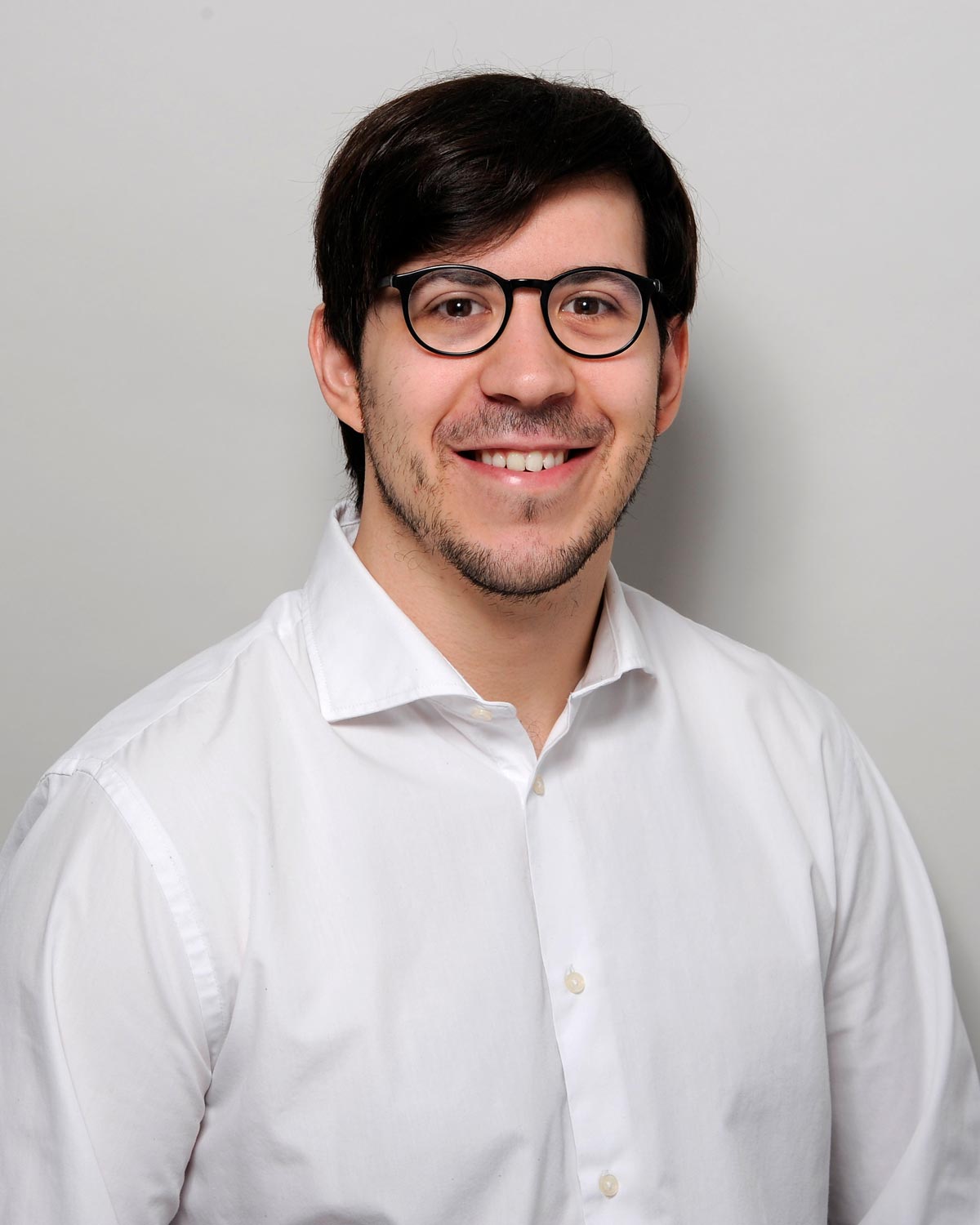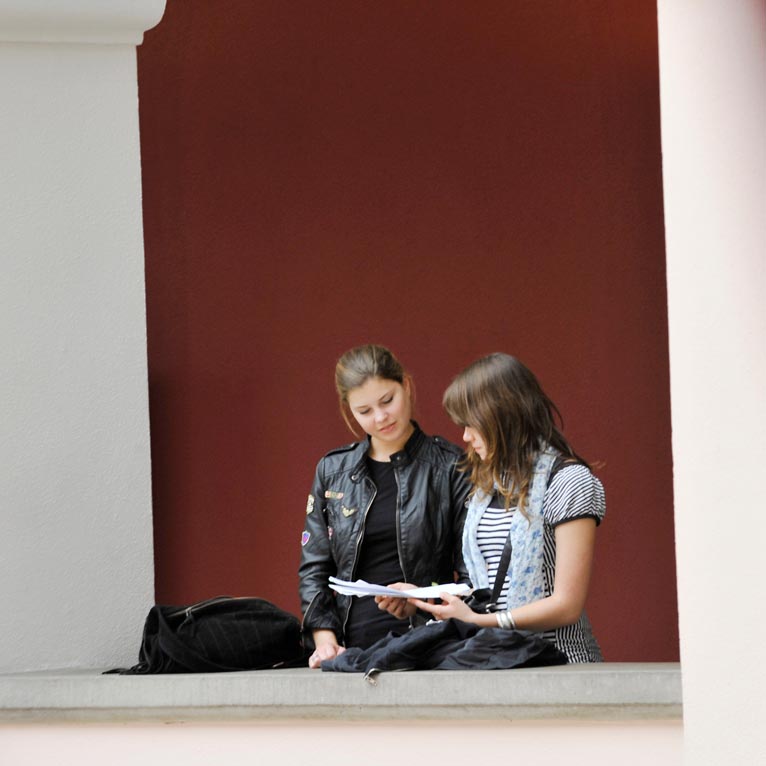Shaping the future of economic research
Lorenzo Maria Casale’s research dives deep into how culture and informal institutions shape economic and political outcomes, using tools from both econometrics and computational methods. From kinship networks in Italian municipalities to the cultural impact of Instagram on youth, Lorenzo investigates the subtle yet powerful ways that social meaning drives behavior and coordination in modern societies. This fall, Lorenzo was awarded one of the three UBS Center Scholarships for 2025 – a recognition given to outstanding doctoral students at the Zurich Graduate School of Economics.
Interview by Maura Wyler
What are the main research questions you are addressing in your PhD?
My research examines how informal institutions and cultural dynamics shape economic and political outcomes – essentially, I’m interested in the mechanisms that operate outside formal rules but fundamentally drive social coordination.
Can you give a concrete example of what this looks like in practice?
I’m currently pursuing two main projects. The first investigates how kinship networks affect political accountability in Italian municipalities. What we’re finding is that when mayors come from locally dominant families, they systematically underperform on objective metrics like EU funding absorption yet maintain electoral support through family ties. The second project uses computational methods to document how social media – Instagram specifically – has transformed youth cultural expression and appearance norms across different socioeconomic backgrounds.
Both projects center on a key concept: social meaning – the shared interpretations we attach to observable behaviors and symbols. Whether it’s a family name in Italian local politics or aesthetic choices on social media, these meanings coordinate behavior in economically significant ways that we’re only beginning to measure properly.
Methodologically, I combine traditional econometric approaches with newer computational tools. For the Italian project, we use standard causal inference, while the Instagram study employs computer vision to quantify cultural convergence at scale – something that would have been impossible to measure even five years ago.
How do you see your findings contributing to society, policymaking, or our understanding of the economy?
When I started examining Italian municipalities, I expected the usual story about corruption or incompetence. Instead, I discovered something more troubling: mayors from dominant families consistently underperform on EU funding and debt management, yet their relatives keep voting for them, without getting evident favors in return. This challenges our fundamental assumptions about rational voter models and political accountability. Working with a political scientist, Luca Vitale from NYU, opened new theoretical avenues that purely economic models could have downplayed.
Similarly, the Instagram project required computer vision expertise to track something economics traditionally couldn’t measure: how teenage girls across different backgrounds increasingly resemble influencers rather than their local peers. This convergence represents a massive cultural shift with implications for consumer behavior and labor markets that conventional economic data would never capture.
These collaborations aren’t just methodologically convenient – they’re essential for understanding our more complex contemporary challenges. Whether it’s political backsliding, cultural homogenization, or comparable phenomena, these exist at the intersection of economic, social, and political forces. My research shows that addressing inequality, institutional failure, and cultural polarization requires breaking down disciplinary boundaries.
Which open questions in your field fascinate you the most?
In one of my projects, I’m exploring how digital technologies are fundamentally rewiring cultural transmission and identity formation. We’re witnessing unprecedented global convergence in appearance norms and expressive behaviors – a phenomenon with profound implications for everything from market segmentation to political mobilization. Understanding these new forms of social coordination is crucial as cultural signals now travel instantaneously across traditional boundaries. Ultimately, the big challenge I’d like to see solved is developing robust frameworks that treat culture as a dynamic economic force rather than a residual explanation.
What steps would you take to tackle this particular challenge?
Currently, cultural explanations are too often treated as residual factors invoked only when standard models fail. Yet, cultural dynamics actively shape relevant outcomes of interests such as institutional effectiveness, market evolution, and policy success. Creating frameworks that capture this complexity would revolutionize our approach to persistent problems like institutional reform and inequality.
What do you hope your research will ultimately achieve?
I want my research to push economics to engage more seriously with how culture and informal institutions actually work. We have these incredibly sophisticated models for market behavior, but we’re still struggling to capture why, for instance, family blocs are a threat to accountability or why teenagers in completely different contexts are converging toward the same Instagram aesthetic. These aren’t marginal phenomena.
In practical terms, I’m aiming for research that speaks directly to policy challenges. The Italian project, for instance, has real implications for how we think about EU development funds and local governance reform. The social media work matters for understanding labor market signaling, consumer behavior, even mental health policy. I want my work to be rigorous enough for top journals but relevant enough that policymakers actually care.
The UBS Center Scholarship makes this kind of ambitious, interdisciplinary work possible. The Center has this culture of taking policy impact seriously without sacrificing methodological rigor, which is exactly where I want to position my research.
Long-term, I'd love to see economics embrace a richer toolkit for understanding cultural and social dynamics. We’re at a moment where computational methods finally let us measure things we could only theorize about before.
Lorenzo Maria Casale’s research dives deep into how culture and informal institutions shape economic and political outcomes, using tools from both econometrics and computational methods. From kinship networks in Italian municipalities to the cultural impact of Instagram on youth, Lorenzo investigates the subtle yet powerful ways that social meaning drives behavior and coordination in modern societies. This fall, Lorenzo was awarded one of the three UBS Center Scholarships for 2025 – a recognition given to outstanding doctoral students at the Zurich Graduate School of Economics.
Interview by Maura Wyler
What are the main research questions you are addressing in your PhD?
My research examines how informal institutions and cultural dynamics shape economic and political outcomes – essentially, I’m interested in the mechanisms that operate outside formal rules but fundamentally drive social coordination.

Quotes
Awarding top academic talents
The UBS Center is a main funding body for top academic talent at the Zurich University’s Graduate School of Economics.
The UBS Center Scholarships are scholarships awarded every year to outstanding PhD students at the Zurich Graduate School of Economics, run by the Department of Economics at the University of Zurich. Furthermore, by funding new endowed chairs at the Department of Economics, the UBS Center will create additional doctoral positions for talented young researchers beyond the scholarship scheme. This will ensure that the Zurich Graduate School of Economics achieves a critical mass of top young talent to create a leading international graduate school with an attractive research environment. By strengthening the University of Zurich’s position as a destination for young academic talent around the world, the UBS Center also aims to further enhance Switzerland’s position as a top location for education and business more generally. After all, investment in higher education and research is a key factor in preserving and further growing economic prosperity in developed economies over the long term.
The UBS Center is a main funding body for top academic talent at the Zurich University’s Graduate School of Economics.
The UBS Center Scholarships are scholarships awarded every year to outstanding PhD students at the Zurich Graduate School of Economics, run by the Department of Economics at the University of Zurich. Furthermore, by funding new endowed chairs at the Department of Economics, the UBS Center will create additional doctoral positions for talented young researchers beyond the scholarship scheme. This will ensure that the Zurich Graduate School of Economics achieves a critical mass of top young talent to create a leading international graduate school with an attractive research environment. By strengthening the University of Zurich’s position as a destination for young academic talent around the world, the UBS Center also aims to further enhance Switzerland’s position as a top location for education and business more generally. After all, investment in higher education and research is a key factor in preserving and further growing economic prosperity in developed economies over the long term.

Contact
Lorenzo Maria Casale is a PhD student in Economics at the University of Zurich. Born and raised in Rome, he holds a Bachelor’s and Master’s degree in Economics from Tor Vergata University. He joined the Zurich Graduate School of Economics at the University of Zurich in 2022 after completing a 2-year pre-doctoral program in the same department with UBS Foundation Professor Hans-Joachim Voth and Prof. Bruno Caprettini. Lorenzo’s research sits at the intersection of political economy and cultural economics, investigating how identity signals and expressive behavior shape political and economic outcomes. He combines causal inference with machine learning methods to study social coordination.
Lorenzo Maria Casale is a PhD student in Economics at the University of Zurich. Born and raised in Rome, he holds a Bachelor’s and Master’s degree in Economics from Tor Vergata University. He joined the Zurich Graduate School of Economics at the University of Zurich in 2022 after completing a 2-year pre-doctoral program in the same department with UBS Foundation Professor Hans-Joachim Voth and Prof. Bruno Caprettini. Lorenzo’s research sits at the intersection of political economy and cultural economics, investigating how identity signals and expressive behavior shape political and economic outcomes. He combines causal inference with machine learning methods to study social coordination.
